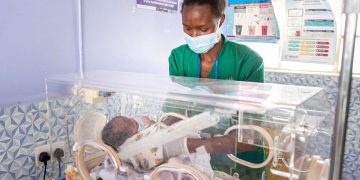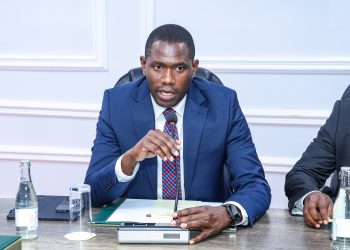In 1992, father Canon Gideon Byamugisha made history as the first African religious leader to declare his positive HIV status to the world, since then he has made it his mission to preach about leading with love, empathy and compassion especially towards people Living with HIV.
Speaking at a recent National Empowerment Network of People Living with HIV and AIDS in Kenya (NEPHAK) meeting in Nairobi, Fr Byamugisha called the responsibility to care for people affected by HIV, Malaria and TB a moral and economic imperative saying.
“Investing in the health of our communities is an investment in stability prosperity and social fabric of our countries.”
In 2023, UNAIDS reported 1.3 million new HIV infections and 630,000 AIDS related deaths.Fr Byamugisha says stigma is one of the major deterrents of HIV response in any country.
“Stigma keeps people from even getting tested,” he said. “In Uganda, for instance, we estimate that 200,000 people are living with HIV but don’t know it. Without knowing their status, they can’t begin treatment or take preventive steps.”
In his advocacy efforts Fr Byamugisha co-founded the African Network of Religious Leaders Living with and Personally Affected HIV and Aids (ANERELA+), the organization now has over 42,000 faith members working and serving within the community to combat HIV misinformation and stigma.
He urged governments, communities, and international partners to show deeper compassion, especially in regions hardest hit by HIV, TB, and malaria like Eastern, Central, and Southern Africa.
“The problem is that the love and support are not evenly distributed,” he said. “Those who need it most, the people that are struggling with stigma, shame, or those engaging in high risk behaviors often receive the least empathy.”
Faith leaders are uniquely positioned to tackle stigma, especially in Africa. In Kenya for instance, over 90 per cent of the population identifies with faith tradition this is according to a research done by Pew Research Center in 2022.
Dwindling Funding
The meeting which convened interfaith leaders from across sub Saharan Africa and beyond also highlighted the urgent need for renewed financial support for the Global Fund to Fight AIDS, TB, and Malaria.
According to Nelson Otwoma, Executive Director at NEPHAK, the Global Fund has been a cornerstone of Kenya’s progress in combating these three major diseases.
“Many of the advancements we’ve made in tackling diseases like HIV, TB, and malaria are due to support from the Global Fund.” He said, “Our health sector is heavily dependent on this funding. We often talk about fast and objective distribution of resources and community sensitization but the Global Fund stands out as one of the most transparent organizations globally.”
He lauded organization for its financial transparency, “Even if you’re unfamiliar with what I’m saying, you can visit their website. They provide detailed reports, including exactly how much money they contribute to Kenya.”
The Global fund aims to save 23 million lives and prevent 400 million new infections by 2029 thus reducing the death toll from 2.3 million in 2023 to 920,000. However, these ambitions are under threat as the fund grapples with donor fatigue and dwindling resources.
In a joint statement the religious leaders made an urgent call;
“We make an urgent call to retake the moral responsibility to care for the vulnerable to sustain life and hope for our communities who are in great need, we call on our governments, donor countries and private sector to step up their commitment to Global Fund ensuring a successful replenishment.”














